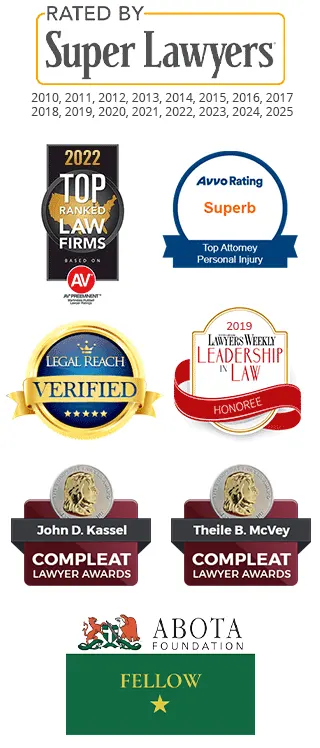

State and Federal Tort Claims Cases
 Both the state and federal governments act through their employees and agents. But what happens if their employees and agents—acting within the scope and course of their employment—act negligently and injure someone? Can an injured individual sue the government?
Both the state and federal governments act through their employees and agents. But what happens if their employees and agents—acting within the scope and course of their employment—act negligently and injure someone? Can an injured individual sue the government?
In many instances, the concept of sovereign immunity was a complete bar to recovery by the injured party. Now, both the federal government and South Carolina state government have adopted tort claim acts, in which the governmental entity consents to be sued in specific circumstances. Examples of these kinds of cases are car accidents with a governmental entity, accidents caused by construction work on roadways, injuries sustained at the post office, and false arrests.
The Federal Tort Claims Act and South Carolina Tort Claims Act both dictate an individual’s rights to sue the government if he or she contends that the sustained injury resulted from the negligence of a city, county, state, or federal entity. These acts, however, are full of exceptions, immunities, and limitations on recovery. The South Carolina Tort Claims Act, for example, entitles a person to file a claim against the highway department for improper maintenance—but not for faulty design.
At Kassel McVey, we help clients with cases that need attention in both state and federal courts. If you have reason to believe that you are the victim of an injury that falls under the Federal Tort Claims Act or believe you have a cause of action against the state of South Carolina, contact an experienced attorney from Kassel McVey today.
The Federal Tort Claims Act
The Federal Tort Claims Act, a legislative act, provides injured victims with the opportunity to file a lawsuit or bring a claim against the U.S. in situations where the country—if considered a private individual—could be deemed accountable for the victim’s sustained injuries. It provides financial compensation for property loss, injury, or death caused by the wrongful or negligent act or mission of any government employee.
Suing the federal government under the Federal Tort Claims Act can be challenging as there is a complex and lengthy list of limitations involved. For instance, only federal employees can be sued, while independent contractors hired by the federal government cannot. Also, only claims of negligence are allowed, as opposed to claims of intentional misconduct.
If you wish to sue under the FTCA, you must file a claim with the federal agency responsible for your injuries or losses. You will have two years from the date of the accident to file your claim with the appropriate agency. Your claim must state the exact amount of damages you are claiming, along with relevant facts about your case.
The federal agency has six months from the time your claim is submitted to rule on it. If your claim is rejected, you have six months from the date the decision is mailed to you to file a lawsuit. If the federal agency does not issue a ruling within six months, you may opt bring your case to court.
The South Carolina Tort Claims Act
While claimants may file a case against the United States, a cause of action stemming from negligence of the state of South Carolina, and/or an entity of the state may also be a legal claim. Victims who sustained injuries or incurred a loss on state property due to the state’s negligence or failure to provide a duty of care may be able to prove a personal injury claim. The South Carolina Tort Claims Act, passed in 1986, holds government officials and employees accountable for their negligent actions in situations where a person is injured.
It is important to note that there is a cap on most damages—limiting the maximum damages to $300,000 per person for acts that stem from a single incident. The maximum total amount that can be recovered from a single incident is $600,000—regardless of the number of parties involved.
The state tort claims act has a number of limitations. If, for instance, you are injured during the course of interaction with a governmental entity, then you cannot sue under any other law except the tort claims act.
For claims under the South Carolina Tort Claims Act, there is a two-year statute of limitations. The law, however, allows for a three-year statute of limitations for a person filing a verified claim under the law. Once you file a claim with the agency that caused your injury, the agency has 180 days from the date of your filing to pay or deny the claim.
Call Kassel McVey Today
At Kassel McVey, we represent clients with claims against government authorities, as well as actions that need to be tried in federal courts. If you think you have a valid claim against a city, county, state, or federal entity, consult with a knowledgeable attorney from our firm to see if it is worth pursuing.
We will thoroughly examine your case to determine the amount and type of damages that you deserve, including medical bills, pain and suffering, permanent disability, and lost income. We will advocate aggressively on your behalf to ensure that you not only recover full and fair compensation for your damages, but that you retain your dignity as well.
Call us today at (803) 256-4242 to schedule a consultation.
Personal Injury Lawyers 1330 Laurel Street Columbia, SC 29201 Phone: 803-256-4242
Mailing Address
Post Office Box 1476
Columbia, South Carolina 29202
Fax: (803) 256-1952
Copyright © 2023 John D. Kassel, Attorney at Law, LLC. All rights reserved. Privacy Policy I Terms of Service | Disclaimer
This website is designed for general information only. The information should not be construed to constitute formal legal advice or the formation of a lawyer/client relationship. The results and testimonials listed on this website are specific to the facts and legal circumstances of specific cases and should not be used to form an expectation that the same results could be obtained for other clients in similar matters. This list is not a description or characterization of the quality of the firm's representation, it is not intended to compare one attorney's work to another and is in no way a guarantee of a specific result for your case.

